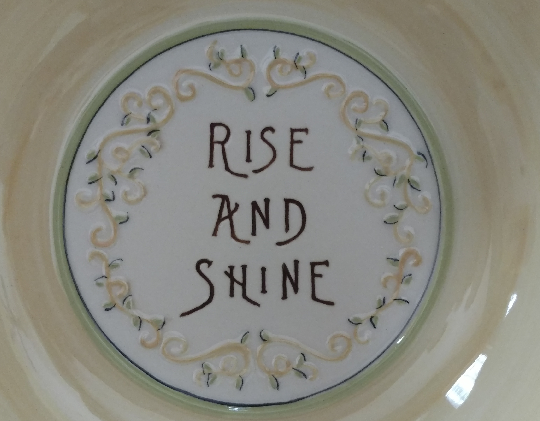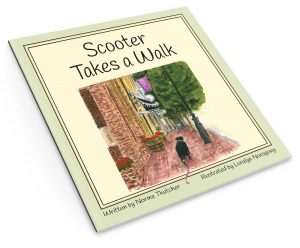
Photo by Norma Thatcher
Non-English speakers learning our language face a common hurdle: idioms.
A strange word in and of itself, an idiom is defined as “a group of words established by usage as having a meaning not deducible from those of the individual words.”
So cats and dogs are not literally falling from the sky with the raindrops, when I want you to wait you don’t actually have to hold the reins of horses, and great-aunt Matilda didn’t physically kick any bucket as she took her last breath.
Growing up hearing these phrases, we understand what they mean, but we don’t usually stop to think about how these odd phrasings came to be an accepted part of our language.
One of my personal favorites is rise and shine. In researching its origin, I discovered several theories. One source says it originated as a military order in the late 1800s and was considered an order to soldiers to get out of bed quickly and shine their boots; in other words, get up and get ready! Or as Dictionary.com says, shine here means “act lively, do well.”
Bloomsbury International figures the origin is from “18th-century sailor speak.” Back then, the life of a sailor could be harrowing. Besides dealing with hard-to-maneuver equipment, they often faced life-threatening weather, a lack of food supplies, and unsanitary living conditions. The sailors no sooner got to bed than it was time to get up. So the captain coined the phrase rise and shine to “inject positivity and cheer” upon waking.
I wonder how well that worked.
On The Phrase Finder, the experts believe that the phrase alludes to the Biblical reference in the 60th chapter of Isaiah, verse 1. We often hear this verse used at Christmas: Arise, shine, for thy light is come, and the glory of the Lord is risen upon thee.
Since that verse from Isaiah has always been one of my favorites, I’m voting for this version of the origin.
And as recommended on KingsEnglish.Info: So in the morning, just as you let the sun rise and shine upon you to brighten your face and give you warmth, so let Christ rise and shine upon you to give you hope and peace.
Stay tuned for Saturday’s post which is a follow-up to this one.
~~~~~~~~~~~~~
It turns out other languages use idioms as well. Check it out here.




Amen to that!